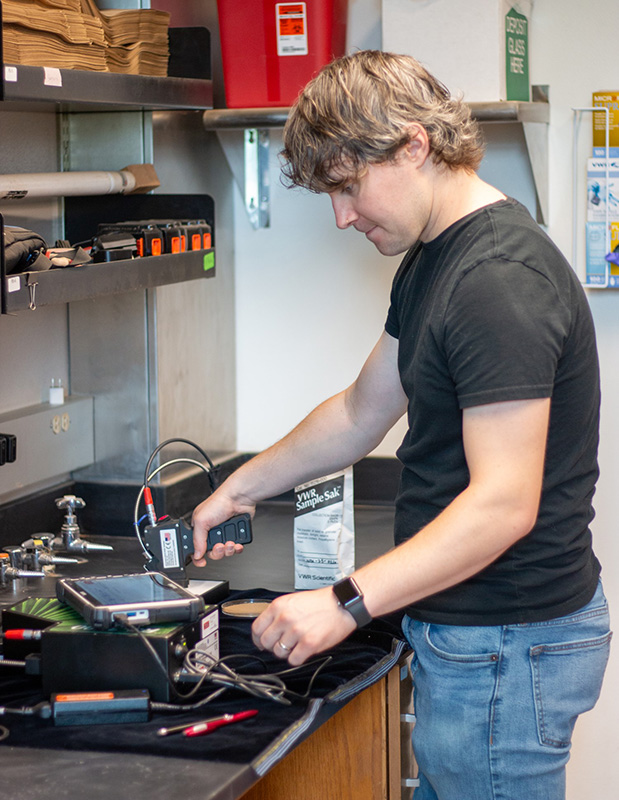Growing up, Harrison Smith was fascinated by the natural world, a passion that led him to realize the importance of environmental stewardship and sustainability as he got older.
"I came to realize the critical importance of addressing climate change in order to achieve a sustainable society and wanted to work on research that could address these issues at a systems scale," he said.
This interest eventually led him to the Graduate School and International Education's Environmental Dynamics doctoral program, where he recently earned a prestigious fellowship to conduct additional research surrounding climate impacts on food crops.
Smith was awarded the Agriculture and Food Research Initiative Predoctoral Fellowship from the National Institute of Food and Agriculture. The fellowship, totaling $180,000 for three years, will fund his research project titled "Where Can We Grow? Machine Learning to Predict Climate Impacts on U.S. Corn and Soybean Suitability," which aims to use machine learning techniques to explore how environmental variation shapes crop suitability and to predict potential impacts of climate change on corn and soybean suitability in the future.
"One of the most important areas to address in sustainability is the agricultural and food production system," Smith said. "Climate change in particular poses a severe threat to agriculture and will require adaptation and careful planning across multiple sectors in order to ensure adequate food production."
 Harrison Smith works in a lab in the Center of Excellence for Poultry Science. |
"My research will seek to address this challenge by studying how soil, climate and landscape factors affect suitability for growing the two biggest U.S. crops: corn and soybean," he added. "Using advanced machine learning models, I will also apply this information to understand how climate change will affect crop suitability into the future and predict where we would be able to grow these crops under various climate change scenarios."
A Fayetteville native, Smith earned a bachelor's degree in biological sciences from the U of A and a master's degree in environment and sustainability from the University of Michigan. As a Doctoral Academy fellow in the Environmental Dynamics Program, Smith utilizes geospatial tools to analyze the patterns and processes that affect sustainability across landscapes and conducts work that seeks to improve the quality of the natural environment and human well-being.
"I am thrilled to receive this fellowship and am honored to have been selected for such a prestigious and competitive award," he said. "As a NIFA fellow, I will be able to fully dedicate myself to research and will be focused on a project that directly contributes to agricultural sustainability and climate resilience. More broadly, this fellowship represents an incredible foundation from which I can build my career as a researcher in environmental dynamics and sustainability."
"Harrison's research, using technology to improve lives and livelihoods in the face of climate change, shines brightly on the U of A Environmental Dynamics Program," said Peter Ungar, director of the Environmental Dynamics Program. "This prestigious and well deserved fellowship from the National Institute of Food and Agriculture makes the importance of his work clear."
Topics
Contacts
John Post, director of communications
Graduate School and International Education
479-575-4853,
